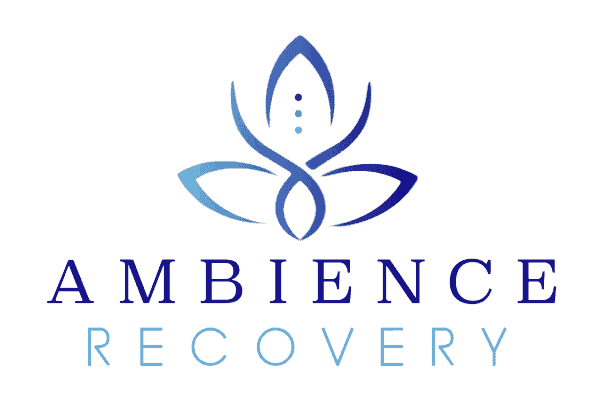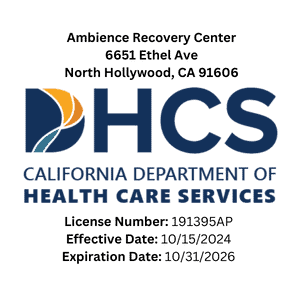Real Stories of Sobriety: How Ambience Recovery and Holistic Treatment Helped People Overcome Addiction
Key Takeaways
| Holistic treatment addresses the whole person | Recovery from addiction involves not just detoxing the body but also healing the mind and spirit through practices like yoga, meditation, and art therapy. |
| Individualized care is essential for success | Every person’s journey through addiction is unique, and customized treatment plans can better meet each individual’s specific needs, increasing the chances of long-term sobriety. |
| Dual-diagnosis treatment tackles addiction and mental health | Treating both substance abuse and co-occurring mental health issues simultaneously is critical for lasting recovery and preventing relapse. |
| Holistic therapies help manage stress and cravings | Practices like mindfulness meditation, acupuncture, and physical exercise can provide healthy coping mechanisms, making it easier to manage triggers and reduce the urge to relapse. |
| Support networks and aftercare are vital | Ongoing support from family, friends, and aftercare programs is key to maintaining sobriety and helping individuals stay connected and committed to their recovery journey. |
The process of quitting drugs or alcohol is a difficult one, and it is a process that only the individual can undertake, but it can be done. Many people have been able to overcome alcohol and drug addiction, and this has been through the help of holistic treatments, professional care, and support. Ambience Recovery is a renowned center for addiction treatment that has emerged as a light of hope for people who need a systematic way of recovery. Here are some real-life stories of people who have quit alcohol with an emphasis on how Ambience Recovery’s holistic approach helped them.
The Role of Ambience Recovery in the Life of Sarah and How It Restored Her Life
Sarah was 28 years of age when she agreed with her friends that she had a drinking problem. She had been hiding her stress and anxiety by drinking a lot of alcohol and did not know the effect it was having on her body. Sarah had tried to quit several times but was unsuccessful, so she came to Ambience Recovery.
An important aspect that helped her recover was the treatment type used at the center. ”I was skeptical at first,” Sarah said. “But Ambience Recovery provided me with more than just therapy and detoxification. They made me try yoga, meditation, and mindfulness. It was not just about stopping the drinking but learning how to live with myself.“
Traditional counseling and holistic treatments were used to treat Sarah and helped her overcome the root causes of her addiction. “For the first time, I felt like I was healing on all levels – physical, emotional, and spiritual. I had never looked at addiction as anything beyond the physical, but Ambience Recovery made me understand that my body and mind were part of the recovery process.”
Today, Sarah has been sober for four years, and she still does yoga and meditates daily. “These holistic practices are a huge part of my staying sober. They have provided me with ways of dealing with stress that does not involve me turning to alcohol.”
Jake’s Struggle Against Prescription Drugs and How Holistic Healing Helped Him.
Jake developed an addiction to prescription opioids after he had a back injury. It started as a way of managing pain, and before you knew it, it had become an addiction. He felt helpless and could not quit even though everything in his life was falling apart.
Ambiance Recovery helped Jake with the medical detox he required, but what he did not expect was the emphasis on a holistic approach. “I did not believe that yoga or acupuncture would benefit me, but they were,” says Jake. “The people at Ambience Recovery convinced me to seek other forms of treatment alongside the normal ones, and I found they made the difference in helping me overcome addiction.“
The acupuncture sessions were especially useful for Jake to control his cravings and anxiety. “I felt like the stress was being washed away, and I didn’t have to turn to drugs to feel better.“
Jake has been sober for three years and credits a lot of his recovery to the holistic treatments that were a big part of his treatment. “It made me realize that I am not just an addict but a person with a full life, and that is what the holistic approach did for me.“
Maria’s Story of Leaving Meth and Starting a New Life with a Holistic Approach
Maria’s life was a “mess” when she decided to come for help for her methamphetamine addiction. She had no job, house, or friends and acquaintances. She desperately needed change, so she enrolled herself at Ambience Recovery.
Maria got more than just a detox program; she got a new life. Nutrition counseling, fitness programs, and art therapy offered by Ambience Recovery allowed her to get back on her feet and find what she loves.
”When I entered the art therapy room for the first time, I felt like I could take a deep breath again,” Maria says. “I had not painted in years, and it was something that I could do to keep myself busy and give me something to do other than use drugs.“
Also, Maria noted that the center’s emphasis on a healthy diet and exercise allowed her to build her physical strength and energy. “I didn’t know how much my unhealthy eating habits and sedentary lifestyle were taking a toll on me; I felt more focused and empowered when I began to eat healthier and exercise.“
Maria has now been sober for over five years and still applies the holistic approaches she learned at Ambience Recovery in her everyday life. “I feel like a new woman. I am not only clean but healthy.”
Why Ambience Recovery Is an Ideal Center for Addiction Treatment:

Holistic Treatment Approach
Ambience Recovery knows that addiction is not only physical but mental and spiritual. They offer a comprehensive approach to treatment that includes yoga, meditation, acupuncture, art therapy, and fitness training to address the person’s physical, mental, and emotional aspects. The center focuses on the physical aspect of the recovery process as well as the emotional and spiritual aspects.
Customized Treatment Plans
Addiction is a complex process, and every person has his or her own experience; that is why Ambience Recovery offers individualized treatment. Whether the patient needs medical detoxification, outpatient treatment, or residential treatment, the center offers individualized treatment plans that consider the patient’s history, triggers, and goals for recovery.
Dual-Diagnosis Treatment
It is also important to note that many individuals who have substance use disorders also have other mental health disorders, including depression, anxiety, and trauma. Ambience Recovery focuses on dual diagnosis treatment that helps to treat addiction and mental disorders at the same time. This approach makes it easier to provide holistic care to the patient hence increasing the chances of recovery.
Supportive and Compassionate Staff
Ambience Recovery is also known for its very friendly and compassionate staff. The staff, comprising therapists, medical personnel, and other holistic caregivers, ensures that every client is well cared for during treatment.
Aftercare and Continued Support
It does not stop at the center’s door when a person is through the recovery process. Ambience Recovery also provides aftercare services such as alumni groups and check-ins to ensure the clients are well cared for. This continued support assists people in sustaining their sobriety and being a part of a healthy and supportive network.
Ambience Recovery has assisted many individuals in achieving sustainable recovery from alcohol and drug addiction through the use of conventional and alternative therapies. If you or someone you love is suffering from an addiction, call 866-721-7470 today for help!
Frequently Asked Questions (FAQ)
Q: What is the meaning of the term holistic addiction treatment?
A: This type of addiction treatment addresses the physical, mental, and spiritual aspects of the individual. It incorporates conventional treatment methods, such as counseling and detoxification, and complementary treatments, such as yoga, meditation, acupuncture, nutrition, and art therapy. The purpose is to work on the root cause of addiction and improve the patient’s quality of life.
Q: How does yoga assist in the addiction recovery process?
A: Yoga is beneficial in treating addiction because it enhances an individual’s physical well-being, relieves stress, and assists them in regaining healthy contact with their bodies. It also enhances mental and emotional health, which helps in controlling urges and temptations during the recovery process.
Q: Does meditation help in controlling the urge to eat?
A: Yes, it is possible to use meditation as a tool to help with cravings. Mindfulness meditation, for instance, enables people to be more conscious of their thinking and feelings without necessarily acting on them. This increased awareness can help to decrease the desire to use drugs or alcohol as a way of dealing with stress.
Q: What is dual-diagnosis treatment, and why is it necessary?
A: Co-occurring disorder treatment, also known as dual-diagnosis treatment, is a form of treatment that is intended for people who have substance use disorder and other mental disorders. Both problems need to be addressed because mental health issues that are not addressed can lead to relapse, which makes it hard to maintain sobriety.
Q: What role does nutrition play in the process of addiction recovery?
A: Nutrition is crucial in the recovery process from addiction because substances used during addiction are known to strip the body of nutrients. A balanced diet is important in the healing process as it aids in the restoration of the body, increases energy, and enhances mood, making the healing process less of a struggle.
Q: Can art therapy be useful in the process of treating addiction?
A: Art therapy is a way of helping people express feelings for which they may not be able to find the words. It can be a form of healing, especially when it comes to dealing with loss, abuse, or stress, as it allows people to express themselves and their feelings constructively instead of using drugs or alcohol.
Q: What are the causes of relapse, and how can they be prevented?
A: Some of the factors that may lead to relapse include stress, emotional issues, certain places, or the company of people who have been linked to substance use. Triggers are best dealt with by identifying ways of dealing with them, such as practicing mindfulness, going to therapy sessions, and ensuring that one has a good support system to turn to in times of difficulty.
Citations
Holistic Medicine: Advances and Shortcomings – NIH.Gov
https://www.ncbi.nlm.nih.gov/pmc/articles/PMC1273970/
Katie is a Licensed Clinical Social Worker who has worked as a primary therapist, supervisor, and now clinical director for SUD/MH treatment centers for the past 12 years. Katie is trained in Brainspotting, EMDR, Internal Family Systems and Dialectical Behavior Therapy and is passionate about treating substance use disorders, trauma and grief.






